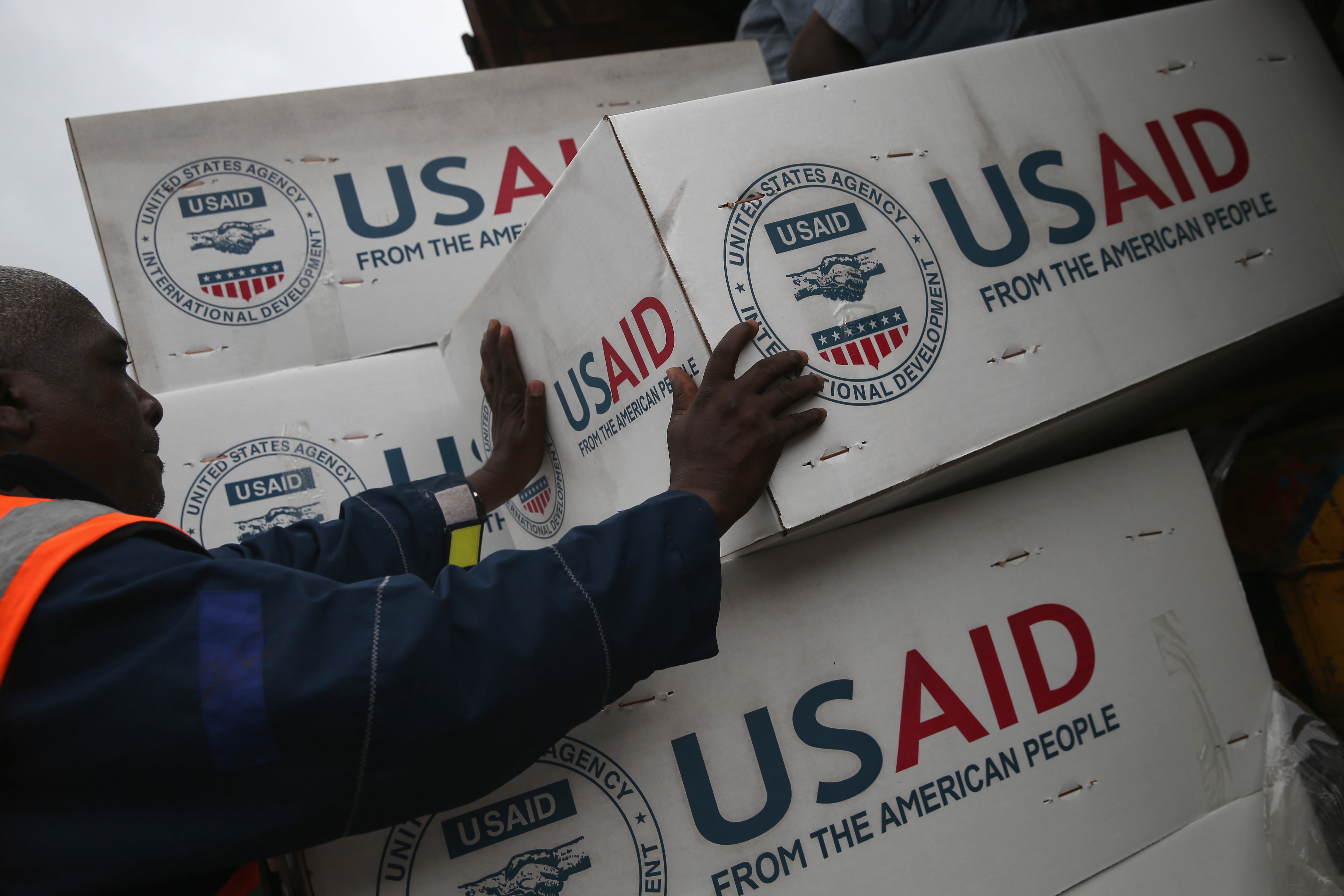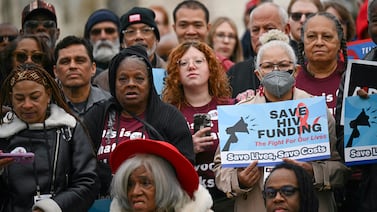Public health, explained: Sign up to receive Healthbeat’s free Atlanta newsletter here.
The Trump administration’s threat to cut funding for global health initiatives is being felt in Atlanta, where nonprofits administer millions in USAID awards.
The nation’s main foreign aid agency funds Atlanta-based organizations like CARE, The Task Force for Global Health, and The Carter Center’s work on global health projects.
USAID’s work is important to Atlanta on “many levels,” said Mark Rosenberg, former president and CEO of the task force, which is headquartered in Decatur, from supporting nonprofits to preventing disease.
“If we do work overseas in global health to prevent the spread of Ebola, it protects us. If we do work around the world and prevent multiply drug resistant TB, it helps us,” Rosenberg said. “The other reason why we should be supporting global health and a lot of the work that USAID does is because we are compassionate people.”
A statement from CARE provided to Healthbeat said “there will undoubtedly be reductions” at the organization.
A five-year USAID-funded project administered by the task force has been paused, spokesperson Jessica Wurst said. The project aimed to improve how sub-Saharan governments and organizations prevent and treat neglected tropical diseases, including river blindness.
The $45 million award involved a partnership with the Kwame Nkrumah University of Science and Technology in Ghana and an African research network, according to a 2024 news release.
“That USAID-funded program has been paused, in compliance with federal directives,” Wurst said.
The task force received just over $95 million in revenue in 2023, according to its annual report. Typically more than half of its program funds come from government sources. The organization also helps manage $961 million in medicines donated by pharmaceutical companies.
Founded in 1961, USAID distributed more than $43 billion in global aid in fiscal 2023, according to a recent Pew Research Center report.
“The abrupt suspension of USAID funding had jeopardized Georgia’s robust global health sector,” said Maria Thacker Goethe, president of Georgia Life Sciences, a non-profit group that promotes the life sciences industry.
A 2020 study of global health found the field contributes more than $3 billion annually to Georgia’s GDP and supports more than 33,000 jobs, Thacker Goethe said.
USAID status is uncertain
The status of USAID workers and projects is unclear. Some employees were told they would be put on leave — and others were — in early February. Work was halted following a Jan. 20 executive order from President Donald Trump calling for “reviewing and realigning” U.S. foreign aid. The order included a 90-day pause on foreign aid spending.
Earlier this month, a federal judge issued a temporary order stopping USAID from placing people on administrative leave. That has been extended to Friday.
“It’s a very fluid and evolving situation,” said Sarah McCool, a professor at Georgia State University who has worked with USAID.
She’s worried about the agency’s humanitarian work.
“Consider … a child that is suffering from severe, acute malnutrition and the program that’s helping feed the child has immediately been halted,” McCool said. “People will die.”
USAID is also key to U.S. “soft power” abroad, she said. “USAID having the global stop-work order is indicative of … a retreat from the broader global stage in terms of humanitarian and global health work."
CARE was working in dozens of countries
Nonprofit CARE, Cooperative for Relief and Assistance Everywhere, headquartered in Atlanta, had about 8,000 employees globally with more than 500 on its American payroll, according to a 2023 tax document.
The organization supports a variety of health and education projects in 121 countries, according to its website.
CARE’s total support was around $900 million, with about a third of that coming from the federal government, mostly from USAID, for the year ending June 30, 2024, according to an audit report.
The report lists at least $278 million in USAID grants for CARE’s work in countries including the Philippines, Bangladesh, Egypt, Ghana, Nigeria, and many others with more than 100 USAID awards.
“CARE is currently reviewing the impacts of these recent developments on our staff and work,” the organization said in a statement. “It is an extremely challenging time, and there will undoubtedly be reductions, though it remains too early to tell how wide-ranging.”
CARE Action, the group’s advocacy wing, earlier this month posted an image stating “Foreign aid is worth it” on its X (formerly Twitter) feed, calling on supporters to call elected representatives and oppose the federal funding pause on foreign assistance.
Carter Center, UGA programs funded by USAID
The Carter Center also lists partnerships with or support from USAID, including a project aimed at eliminating river blindness and an initiative announced last year to improve women’s access to information in Bangladesh.
Carter Center CEO Paige Alexander spent more than a decade at USAID in senior roles, according to her official biography.
The organization would not comment on USAID’s status, spokesperson Rennie Sloan told Healthbeat.
A peanut innovation lab at University of Georgia is also funded by USAID. The agency in 2023 renewed funding for the lab for five years, with a reported $15 million award.
The lab supports a wide range of projects focused on improving peanut farming in five African countries: Ghana, Madagascar, Malawi, Senegal, and Uganda, according to its annual report.
Representatives from the university did not respond to requests for information about the status of the lab.
Tuberculosis programs could be at risk
Emory University professor Dr. Kenneth Castro said he’s worried about the fate of tuberculosis programs abroad given the threat of the dismantling of USAID.
Castro, who served as the director of the Center for Disease Control and Prevention’s Division of Tuberculosis Elimination for two decades, is a senior adviser to USAID’s TB Division.
He said his assignment to USAID was suspended in late January.
USAID leads America’s global tuberculosis program, with a focus on 24 countries with high rates of the disease, Castro said.
He’s worried about people losing access to TB treatment and of the development of highly drug-resistant tuberculosis.
“If you cease programs that have been implemented for the last several years, you run the risk of worsening of disease,” Castro said. He’s also worried about his colleagues abroad.
“As of now, the future and details surrounding USAID and its work remain uncertain,” Castro wrote Friday.
Do you work with an agency in Atlanta that is impacted by federal funding uncertainty? Tell us about it. Email reporter Rebecca Grapevine at rgrapevine@healthbeat.org.







